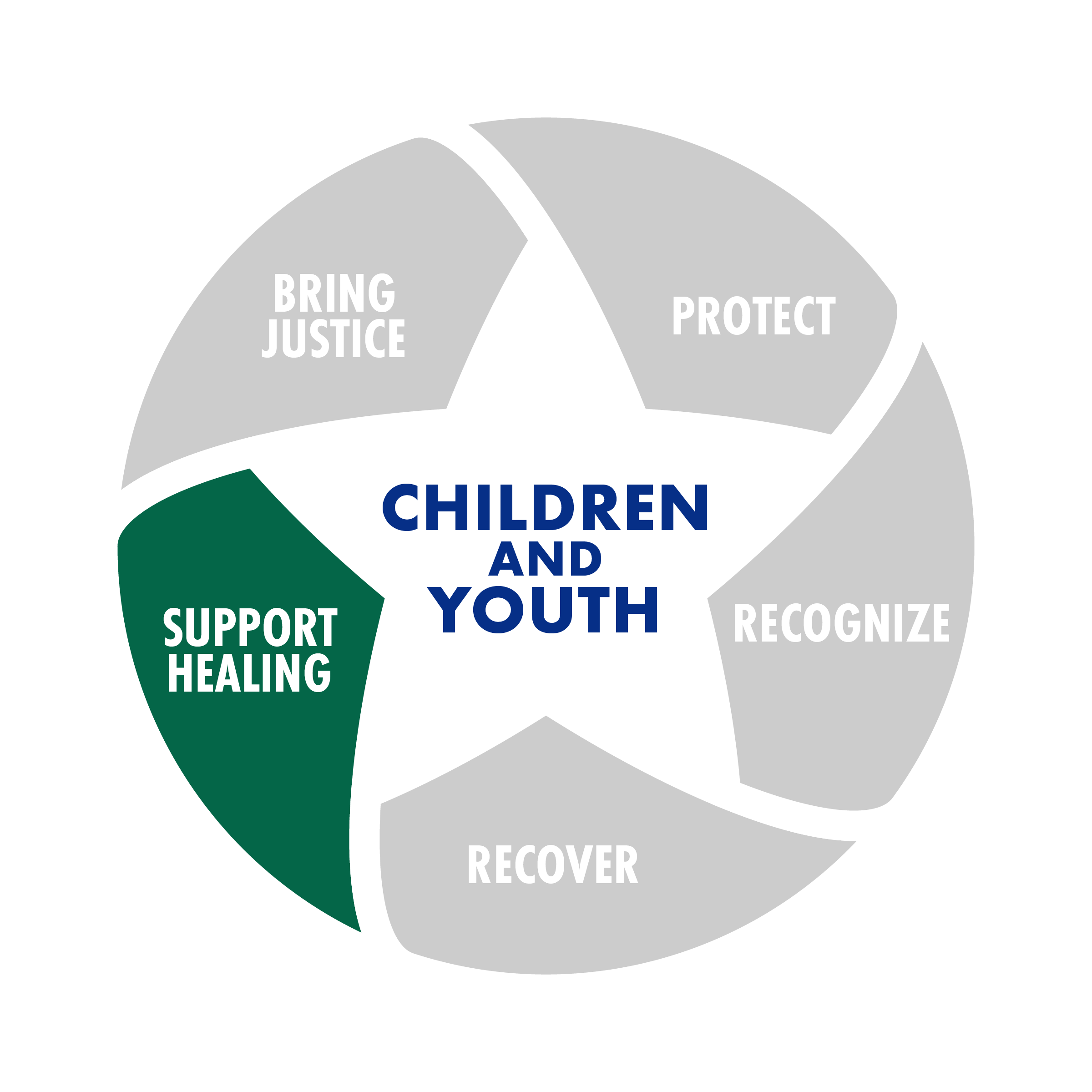Child Sex Trafficking - Support Healing
 Trafficking survivors often experience complex trauma and a loss of self-identity as well as serious financial and healthcare issues. These difficulties create barriers to securing safe and stable housing as well as education and employment opportunities.
Trafficking survivors often experience complex trauma and a loss of self-identity as well as serious financial and healthcare issues. These difficulties create barriers to securing safe and stable housing as well as education and employment opportunities.
Complex trauma takes a lifetime of healing. A survivor's healing from complex trauma can be interrupted by events which may cause trauma responses. These trauma responses can be destabilizing for survivors and derail their progress. With support, these responses can also present an opportunity to re-engage in healing and recovery.
It takes time because you have been deeply defined by someone with power and control over you — you feel powerless.
CST survivor
CSTT has several strategies to shift the focus from surviving to thriving, including:
- Equipping all stakeholders to provide victim-centered, trauma informed responses and ongoing services;
- Building capacity within child welfare and juvenile justice systems to serve victims;
- Developing, supporting, and increasing capacity within community-based services for victims;
- CSEY Advocacy;
- Care Coordination.
Resources
- National Human Trafficking Referral Directory
- Texas Human Trafficking Resource Center
- Office on Trafficking in Persons
- Office for Victims of Crime: Human Trafficking
Programs Supported by Grants from the Office of the Governor
Long-Term Residential Programs
Residential treatment programs that provide survivors with trauma-responsive case management, wraparound services, and 24-hour clinical and behavioral crisis services.
- New Life Refuge Ministries (Nueces County)
- One Voice Home (Lubbock County)
- Unbound: The Reagan Home (McLennan County)
Drop-In Centers
These programs provide immediate needs, including safety planning, crisis counseling, and opportunities for engagement in services for youth who are likely victims of sex trafficking.
- Central Texas Youth Services (Bell County)
- El Paso Center for Children (El Paso County)
- Family Ties (Waller County)
- New Friends New Life (Dallas County)
- SAFE Alliance (Travis County)
- The Underground (Tarrant County)
Community-Based Services for Youth
- Arrow Child and Family Ministries (Harris County)
- Family Counseling Services of Lubbock (Lubbock County)
- Poetic (Dallas County)
- Ransomed Life (Bexar County)
- United Against Human Trafficking (Harris County)
- YMCA International Counseling (Harris County)
Community Case Management and Counseling Programs for Adults
- Family Counseling Services of Lubbock (Lubbock County)
- New Friends New Life (Dallas County)
- Ransomed Life (Bexar County)
- United Against Human Trafficking (Harris County)
- YMCA International Counseling (Harris County)
